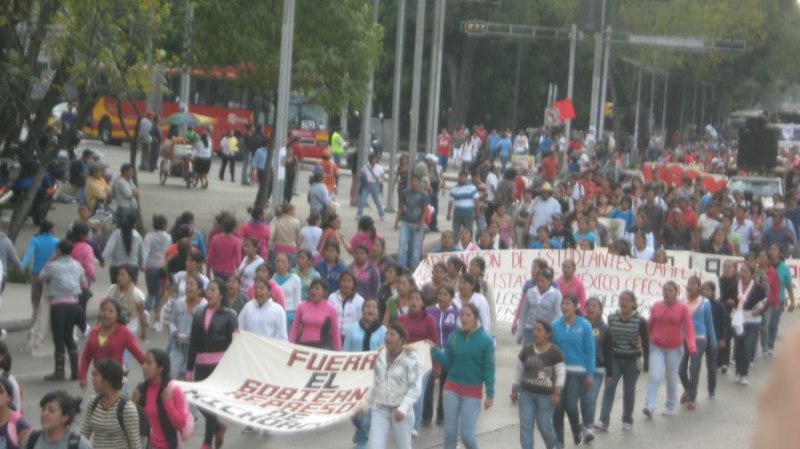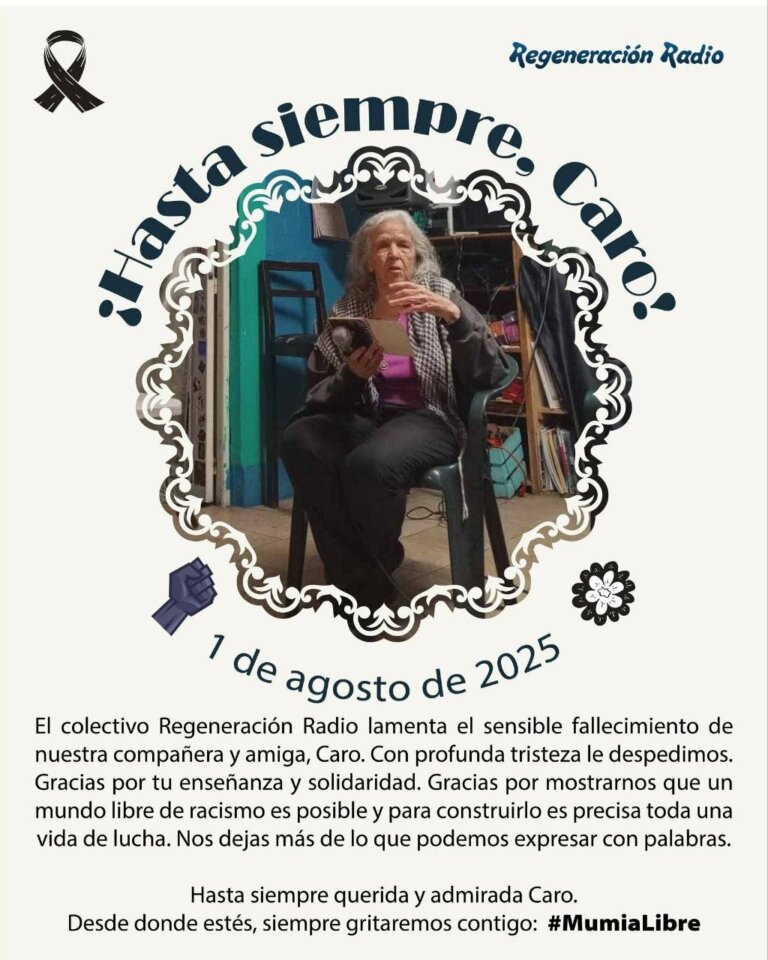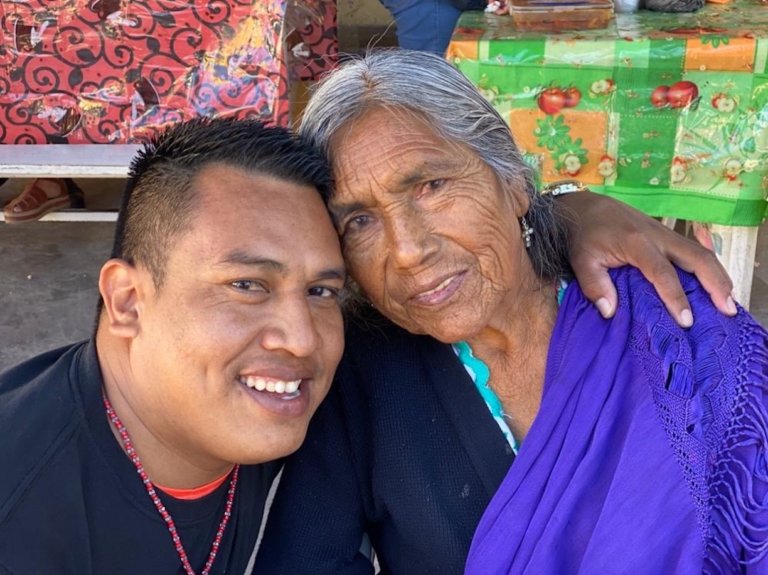x carolina
Hundreds of students from the rural teacher-training schools of Michoacán and other states who belong to the Mexican Federation of Socialist Campesino Students (FECSM), arrived in Mexico City on Tuesday, October 23, to march for the freedom of 8 of their comrades jailed in the city of Morelia, Michoacán, after a violent police operation perpetrated in three schools on October 15. They also demand the exoneration of 41 other comrades now out on bail, punishment for the state and federal police, the destitution of Governor Fausto Vallejo Figueroa and other government officials, and an end to the business-oriented plan of studies imposed against the will of the students.
Demonstrators marched from the Angel of Independence to the Ministry of the Interior along with teachers of the National Education Workers Coordinating Committee (CNTE), members of #YoSoy132 from different schools, striking students of the Autonomous University of Mexico City (UACM), the Movement of Applicants Excluded from Higher Education (MAES), the Peoples’ Front in Defense of the Land (FPDT) of San Salvador Atenco and the Independent Francisco Villa Popular Front (FPFVI) among other organizations.
One significant solidarity action was the takeover of the Michoacán government office in Mexico City for a few hours by about 40 students from the #I Am 132 movement.
Part of the neoliberal educational reforms in Mexico has been the closing of teacher-training schools, where the children of campesinos and workers can get an education that fosters critical thinking with a social consciousness. These schools have also been centers of resistance ever since the days when Lucio Cabañas and Genaro Vázquez taught school at Ayotzinapa, Guerrero, in the 1960s. On December 12, 2011, two Ayotzinapa students were killed by the police during a protest, and last August, future teachers in Durango were attacked and tortured.
It’s no exaggeration to say that the rural teacher-training schools are a species in danger of extinction. In 2000 there were 46 of them throughout the country, and now there are only 16. Students consider the current plan of studies as part of a strategy to convert their schools into technological centers. In Michoacán, they asked for a meeting with Governor Fausto Vallejo to demand that he intervene and scuttle the curriculum reform, or at least delay it for one year to give time for negotiations.
When their demands were rejected, the students took over several highway toll booths and allowed free passage for vehicles, and also commandeered 20 buses and 18 commercial delivery trucks as a form of protest. During the violent eviction of students in Tiripetío, Cherán and Arteaga by state and federal police on October 15, which resulted in numerous wounds, arrests, and acts of humiliation and abuse of students and their family members, 16 vehicles were burned, at least 3 of them by the police.
In the wake of this repression, protests have paralyzed the city of Morelia, Michoacán, and there have also been solidarity protests in Oaxaca, Veracruz, Mexico City and other parts of the country.
At the October 23rd protest, there was not just a single spokesperson for the FECSM, but rather dozens of youth that took the mic during the march and ensuing rally to denounce the criminal, terrorist attacks against them and to underscore their commitment to “a new day of struggle” to gain freedom and justice.
“What is our crime?” a young woman asked. “Our desire to study! Our desire to educate ourselves so we can make sure there’s a future for the children of people who now have nothing at all in this life! This is our mission. But the government wants to do away with our schools.”
“They call us criminals. They call us terrorists. They call us vandals because we refuse to sit back and do nothing while they try to wipe out our schools,” said one teenager. “But who destroyed our dining room? Who beat us with clubs? Who drenched us with teargas? Who abused our people under arrest? Who stole our things? We are not the criminals, the vandals, the terrorists. The police are to blame.”
The torrent of accusations continued: “On October 15 at 2 o’clock in the morning, Governor Fausto Vallejo sent 1500 riot police to run us out of our own schools. And they were well-armed. It was an action planned in advance. And to keep the society from knowing what was going on, they deliberately perpetrated this cruel operation in the early morning hours. So the people wouldn’t know. So the people wouldn’t find out. And now the government wants to cover up what they did, act like nothing happened, carry on business as usual. But no! No, comrades. No, my people! It’s time to demand justice! Time to demand our rights as a people!”
“In Tiripetío, 178 students were arrested and around 300 people were wounded in this criminal action. We are socially conscious students. We know our rights. We only demand what is just. We demand repartions for the damage they did in our teacher-training schools in Michoacán. We demand justice. All we want is justice.”
“We’re fed up!” said a young woman comrade. “At our schools in the communities of Tiripetío, Arteaga and Cherán, federal troops attacked our comrades. They want to force us to accept their plan of studies, but we are completely against it. How long, comrades? How long are we going to close our eyes to what’s happening? No more injustice! We demand freedom for our prisoners! Let’s don’t let them beat us down! We’re here because we want justice, and justice is what we’re going to fight for!”












